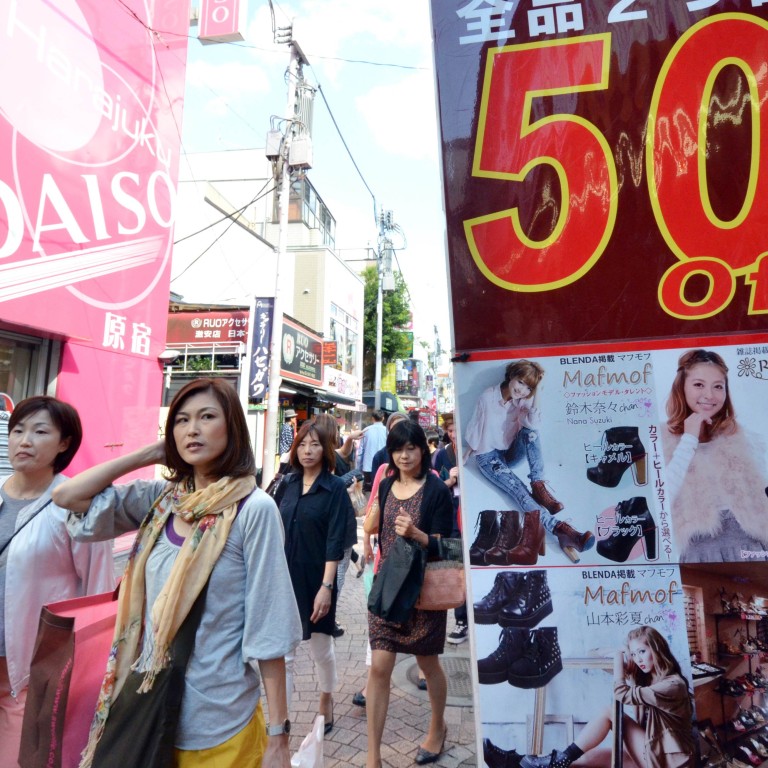
Strong labour market drives spending as Japan's consumers rush to beat rise in sales tax
Consumer spending in Japan jumped last month as shoppers front-loaded purchases before a sales tax increase next year, a boost to government efforts to spark demand and end 15 years of deflation.
The 3.7 per cent year-on-year gain in household spending was the strongest in six months and blew past the median estimate of a 0.5 per cent rise, data from the Internal Affairs Ministry showed on Tuesday.
Retail sales rose 3.1 per cent in September from a year earlier, more than the median estimate of a 1.9 per cent increase, as consumption rebounded from a dip in the middle of this year.
A stronger labour market is driving gains in consumer spending, which suggests that Prime Minister Shinzo Abe’s efforts to beat deflation with government spending and aggressive monetary easing are making progress.
“People are looking to shop before the tax hike, and the jobs situation is improving,” said Hiroaki Muto, senior economist at Sumitomo Mitsui Asset Management.
“The negative output gap is narrowing, and soon we will have a positive output gap that will contribute to inflation.”
People are looking to shop before the tax hike, and the jobs situation is improving
In April, the sales tax will rise to 8 per cent from 5 per cent. This has helped spur a boom in residential property and prompted many shoppers to buy goods before they become more expensive.
The jobs-to-applicants ratio was 0.95 in September, unchanged from the previous month, when it rose to its highest since May 2008.
The seasonally adjusted unemployment rate fell to 4 per cent from August’s 4.1 per cent, the ministry’s figures showed, matching economists’ median forecast.
Abe has made ending deflation and turning the economy around a top priority of his government. As part of the plan, the Bank of Japan radically expanded its quantitative easing in April to try to meet a goal of 2 per cent inflation in two years.
The central bank is due to release updated inflation and economic forecasts at a policy meeting on Thursday.
Japan’s growth has outpaced that of its Group of Seven rich-country peers so far this year, but whether its pace can be sustained remains to be seen as capital spending – a weak spot in the economy – has only recently started to show signs of recovery.

